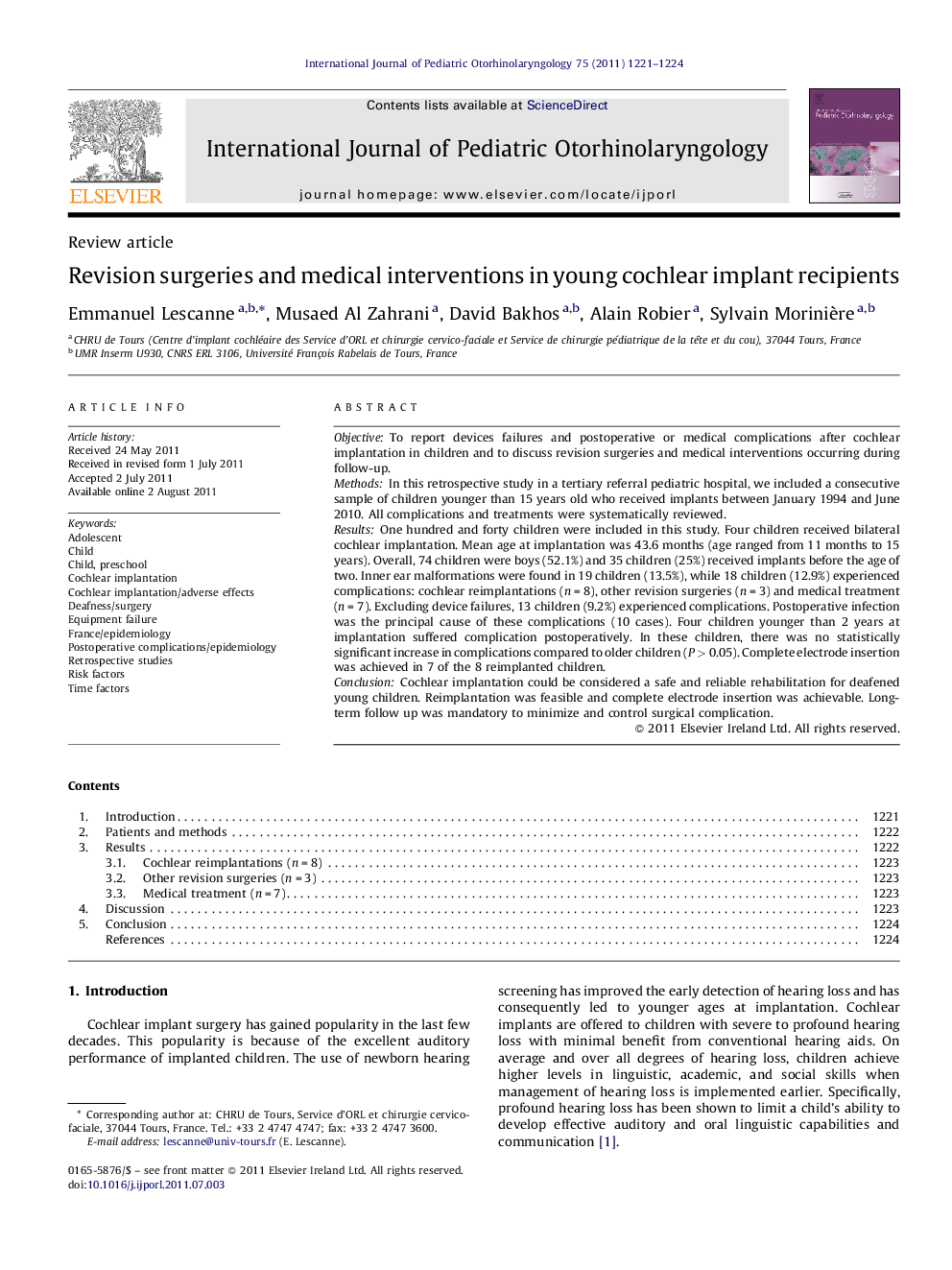| Article ID | Journal | Published Year | Pages | File Type |
|---|---|---|---|---|
| 6214187 | International Journal of Pediatric Otorhinolaryngology | 2011 | 4 Pages |
ObjectiveTo report devices failures and postoperative or medical complications after cochlear implantation in children and to discuss revision surgeries and medical interventions occurring during follow-up.MethodsIn this retrospective study in a tertiary referral pediatric hospital, we included a consecutive sample of children younger than 15 years old who received implants between January 1994 and June 2010. All complications and treatments were systematically reviewed.ResultsOne hundred and forty children were included in this study. Four children received bilateral cochlear implantation. Mean age at implantation was 43.6 months (age ranged from 11 months to 15 years). Overall, 74 children were boys (52.1%) and 35 children (25%) received implants before the age of two. Inner ear malformations were found in 19 children (13.5%), while 18 children (12.9%) experienced complications: cochlear reimplantations (n = 8), other revision surgeries (n = 3) and medical treatment (n = 7). Excluding device failures, 13 children (9.2%) experienced complications. Postoperative infection was the principal cause of these complications (10 cases). Four children younger than 2 years at implantation suffered complication postoperatively. In these children, there was no statistically significant increase in complications compared to older children (P > 0.05). Complete electrode insertion was achieved in 7 of the 8 reimplanted children.ConclusionCochlear implantation could be considered a safe and reliable rehabilitation for deafened young children. Reimplantation was feasible and complete electrode insertion was achievable. Long-term follow up was mandatory to minimize and control surgical complication.
